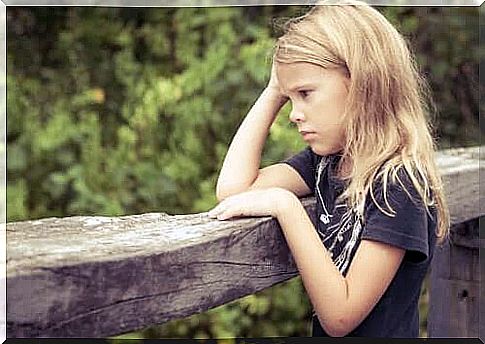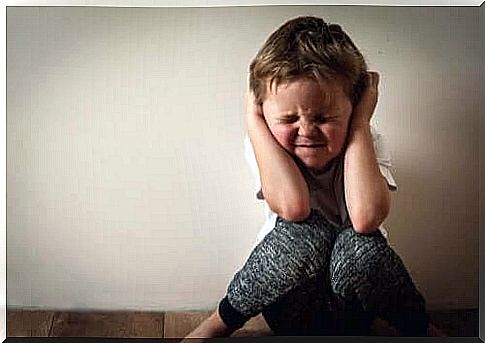Toxic Stress And The Development Of Children’s Brains

Children’s development can be affected if the body and brain are exposed to too much stress. In fact, toxic stress can have detrimental effects on learning, behavior and a child’s health throughout its life.
It is important that children learn to deal with adversity and challenges, because it is an important part of their development. When your body is threatened, it responds by increasing your heart rate, your blood pressure and stress hormones such as cortisol.
When a threat activates a young child’s stress response in an environment where the adults give the child support, this environment will dampen the psychological effects.
They therefore develop healthy responses to stress. However, if these responses are extreme and long-lasting, and the child does not feel supported, then the brain structure and body may be affected.
A child’s stress response will then always be on the alert. This increases the risk of developmental delays, learning problems and behavioral problems in children.
There is also a risk of developing diabetes, heart disease, depression, drug abuse, alcoholism and other health problems during adulthood.
Biological research has shown that chronic and severe stress can be toxic to developing brains and biological systems.
These responses can then be triggered by adversity such as poverty, abuse, indifference or a violent environment. A child can also be affected if the guardian is a substance abuser or has some form of mental illness.

Stress during childhood
Early childhood experiences play an important role when it comes to how the brain develops and functions.
Interactions between the child and the surrounding environment affect behavior, health and learning.
In order to be able to develop a healthy brain structure, it is important that the child has caring guardians. The child also needs to develop positive relationships.
These people will help the child learn to deal with stressful experiences.
Stress is generally a physiological response to a demanding circumstance. It gives rise to biochemical changes in the nervous system, the endocrine system and the immune system.
However, stress is not always a negative thing. It can be positive, tolerable or toxic.
Positive responses to stress are important for the child’s development. A child receives support through his social and emotional absorption mechanisms, such as calm and parental protection.
The child gets motivation and resilience after each positive stress response.
The responses used to tolerate stress are more serious, frequent and consistent. At the same time, the body responds to a greater degree and these biochemical responses have the potential to affect brain structure.
When it comes to tolerable stress responses, the brain and organs will recover completely as the adversity has disappeared if the child is protected by receptive relationships.
The guardian must therefore provide support both emotionally and socially.
Toxic stress in children
Toxic stress is an abnormal response to stress and results in increased cortisol levels. There is also a persistent inflammatory condition where the body fails to resolve these changes.
This happens regardless of whether the stress has disappeared or not.
Toxic stress results in continuous activation of the stress response. The body does not succeed in returning to normal. Lack of support, comfort and emotional ties from guardians can prevent normal stress response.
Toxic stress in children is a very serious problem. Children who experience it are at risk of far-reaching health effects. However, many of the effects may not show up until the person reaches adulthood.
These health effects include poor ability to manage stress. These people may also be at risk of developing mental illness, unhealthy lifestyles or physical illnesses.
The more negative a child’s experiences are, the more likely it is that development is delayed and that health problems arise; such as heart problems, diabetes, substance abuse, depression, etc.

Brain development and toxic stress
Children experience external behaviors – such as aggression – and internal behaviors – such as anxiety and depression.
The problem is that these behaviors are not unique to children whose development has been affected by stress and trauma.
The people around the child often see only a rowdy and aggressive child. They do not see a child just trying to draw attention to someone about the pain he or she is experiencing.
The trauma that causes toxic stress and its effects can also have some effect on normalization.
Children who do not have a broader view of the world may think that domestic violence is normal or that violence in society is as natural as rain.
With regard to the development itself, the child is at risk of suffering from permanent changes in the brain structure, epigenetic modifications and modified genetic functions.
The long-term health effects of child development are critical and include an increased risk of stress-related illnesses.
The response to toxic stress affects the neuroendocrine immune network. It therefore simultaneously leads to a prolonged and abnormal cortisol response.
The result is an affected immune system whose effects include a persistent inflammatory condition, which increases the risk and frequency of infections in children.
The researchers also believe that the response to toxic stress can lead to other psychological conditions, such as depression, lack of self-control, post-traumatic stress disorder and psychosis.
We also know that adults who have experienced difficulties during early childhood also suffer from more physical illnesses and poor health situations, such as alcoholism.
It can also lead to childhood illnesses, depression, cancer, obesity, suicidal thoughts and heart problems.
What can you do?
Experts recommend making it easier to access specialist help.
This is especially important for guardians who do not have enough knowledge and skills to help young children with toxic stress.
The experts also suggest supporting existing intervention programs.









